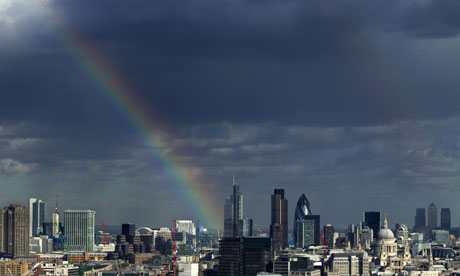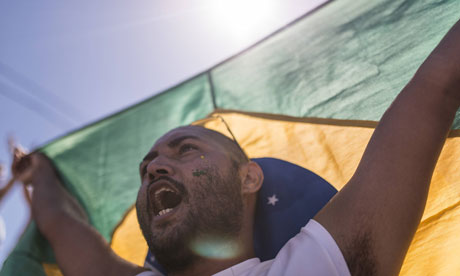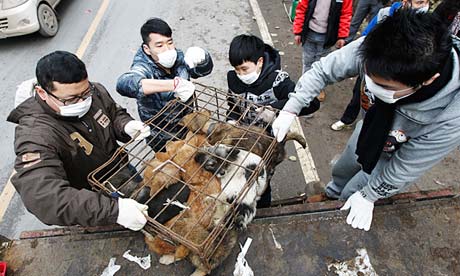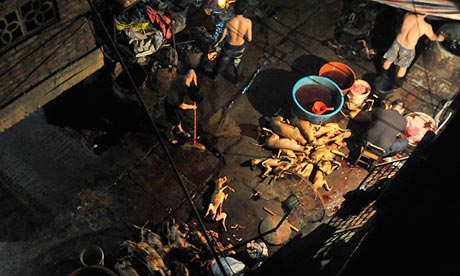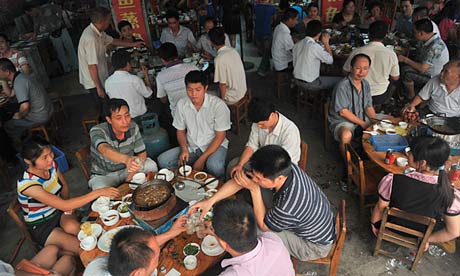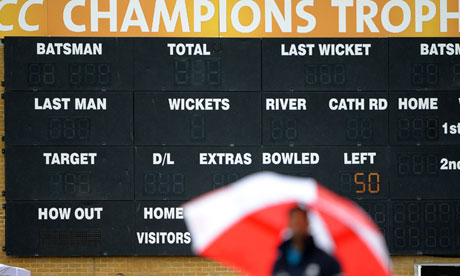Exclusive: McDonald's sued green activists in long-running David v Goliath legal battle, but police role only now exposed
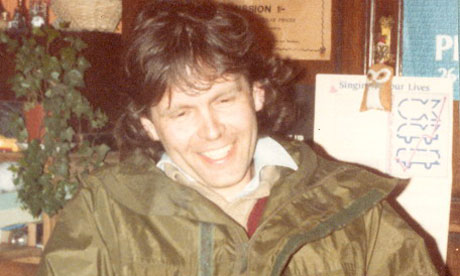
Bob Lambert posed as a radical activist named Bob Robinson.
An undercover police officer posing for years as an environmental activist co-wrote a libellous leaflet that was highly critical of McDonald's, and which led to the longest civil trial in English history, costing the fast-food giant millions of pounds in fees.
The true identity of one of the authors of the "McLibel leaflet" is Bob Lambert, a police officer who used the alias Bob Robinson in his five years infiltrating the London Greenpeace group , is revealed in a new book about undercover policing of protest, published next week.
McDonald's famously sued two penniless green campaigners over the roughly typed leaflet, in a landmark three-year high court case, that was widely believed to have been a public relations disaster for the corporation. Ultimately the company won the libel battle it need never have fought, having spent expensively on lawyers.
Lambert was deployed by the special demonstration squad, a top-secret Metropolitan police unit that targeted political activists between 1968 until it was disbanded in 2008. He co-wrote the defamatory six page leaflet in 1986 — and his role in its production has been the subject of an internal Scotland Yard investigation for several months.
At no stage during the civil legal proceedings brought by McDonalds in the 1990s was it disclosed that a police infiltrator helped author the leaflet.
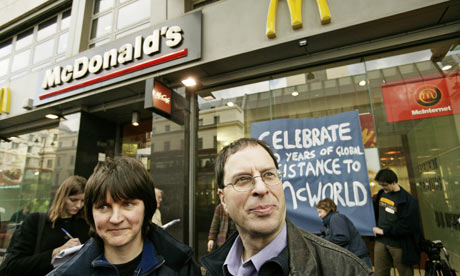 The McLibel two: Helen Steel and David Morris, outside a branch of McDonald's in, London, after winning their case in the European court of human rights, in 2005. Photograph: Martin Argles for the Guardian
The McLibel two: Helen Steel and David Morris, outside a branch of McDonald's in, London, after winning their case in the European court of human rights, in 2005. Photograph: Martin Argles for the Guardian
A spokesman for the Met said the force "recognises the seriousness of the allegations of inappropriate behaviour and practices involving past undercover deployments". He added that a number of allegations surrounding the undercover officers were currently being investigated by a team of police officers overseen by Derbyshire police's Chief Constable Mick Creedon.
And in remarks that come closest to acknowleding the scale of the scandal surrounding police spies, the spokesman added that: "At some point it will fall upon this generation of police leaders to account for the activities of our predecessors, but for the moment we must focus on getting to the truth."
Lambert declined to comment about his role in the production of the McLibel leaflet. However he previously offered a general apology for deceiving "law abiding members of London Greenpeace", which he said was a peaceful campaign group.
Lambert, who rose through the ranks to become a spymaster in the SDS, is also under investigation for sexual relationships he had with four women while undercover, one of whom he fathered a child with before vanishing from their lives. The woman and her son only discovered that Lambert was a police spy last year.
The internal police inquiry is also investigating claims raised in parliament that Lambert ignited an incendiary device at a branch of Debenhams when infiltrating animal rights campaigners. The incident occured in 1987 and the explosion inflicted £300,000 worth of damage to the branch in Harrow, north London. Lambert has previously strongly denied he planted the incendiary device in the Debenhams store.
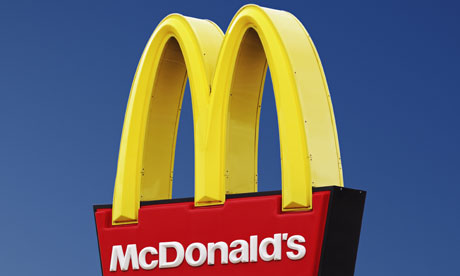 While McDonald's won the initial legal battle, at great expense, it was seen as a PR disaster. Photograph: Image Broker/Rex Features
While McDonald's won the initial legal battle, at great expense, it was seen as a PR disaster. Photograph: Image Broker/Rex Features
Lambert's role in helping compose the McLibel leaflet is revealed in 'Undercover: The True Story of Britain's Secret Police', which is published next week. An extract from the book will be published in the Guardian Weekend magazine. A joint Guardian/Channel 4 investigation into undercover policing will be broadcast on Dispatches on Monday evening.
Lambert was one of two SDS officers who infiltrated London Greenpeace; the second, John Dines, had a two-year relationship with Helen Steel, who later became the co-defendant in the McLibel case. The book reveals how Steel became the focus of police surveillance operations. She had a sexual relationship with Dines, before he also disappeared without a trace.
Dines gained access to the confidential legal advice given to Steel and her co-defendant that was written by Keir Starmer, then a barrister known for championing radical causes. The laywer was advising the activists on how to defend themselves against McDonalds. He is now the director of public prosecutions in England and Wales, one of the most senior legal figures in the country.
Lambert was lauded by colleagues in the covert unit for his skilful infiltration of animal rights campaigners and environmentalists in the 1980s. He succeeded in transforming himself from a special branch detective into a long-haired radical activist who worked as a cash-in-hand gardener. He became a prominent member of London Greenpeace, around the time it began campaigning against McDonalds in 1985. The leaflet he helped write made wide-ranging criticisms of the corporation, accusing it of destroying the environment, exploiting workers and selling junk food.
Four sources who were either close to the spy at the time or involved in the production of the leaflet have confirmed his role in composing the libellous text. Lambert confided in one of his girlfriends from the era, although he appeared keen to keep his participation hidden. "He did not want people to know he had co-written it," the woman said.
Paul Gravett, a London Greenpeace campaigner, said the spy was one of a small group of around five activists who drew up the leaflet over several months. Another close friend from the time recalls Lambert was really proud of the leaflet. "It was like his baby — he carried it around with him," the friend said.
When Lambert's undercover deployment ended in 1989, he vanished, claiming that he had to flee abroad because he was being pursued by special branch. None of his friends or girlfriends suspected for a moment that special branch were actually his employer.
It was only later that the leaflet Lambert helped to produce became the centre of the huge trial. Even though the activists could only afford to distribute a few hundred copies of the leaflet, McDonald's decided to throw all of its legal might at the case, suing two London Greenpeace activists for libel.
Two campaigners — Steel, who was then a part-time bartender, and an unemployed postman named Dave Morris — unexpectedly stood their ground and refused to apologise.
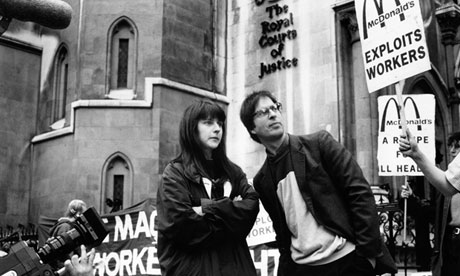 Steel and Morris outside the high court at the start of the very first proceedings in the McLibel trial, in 1990. Photograph: Photofusion/UIG via Getty Images) exploitation|criticising|defendents|royal|corporation|morris|act Photograph: Photofusion/UIG/ Getty Images
Steel and Morris outside the high court at the start of the very first proceedings in the McLibel trial, in 1990. Photograph: Photofusion/UIG via Getty Images) exploitation|criticising|defendents|royal|corporation|morris|act Photograph: Photofusion/UIG/ Getty Images
Over 313 days in the high court, the pair defended themselves, with pro bono assistance from Starmer, as they could not afford to hire any solicitors or barristers. In contrast, the corporation hired some of the best legal minds at an estimated cost of £10m. During the trial, legal argument largely ignored the question of who wrote the McLibel leaflet, focusing instead on its distribution to members of the public.
In 1997, a high court judge ruled that much of the leaflet was libellous and ordered the two activists to pay McDonalds £60,000 in damages. This sum was reduced on appeal to £40,000 — but McDonald's never enforced payment against Steel and Morris.
It was a hollow victory for McDonald's; the long-running trial had exposed damaging stories about its business and the quality of the food it was selling to millions of customers around the world. The legal action, taking advantage of Britain's much-criticised libel laws, was seen as a heavy handed and intimidating way of crushing criticism. However the role of undercover police in the story remained, until now, largely unknown.

